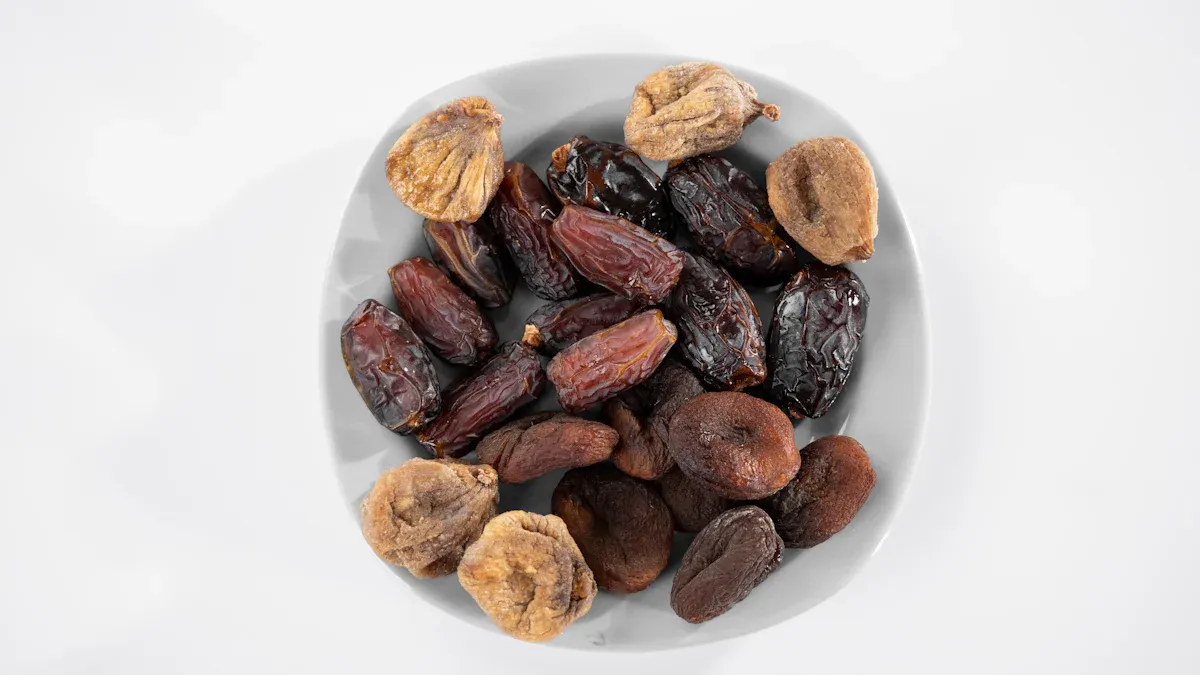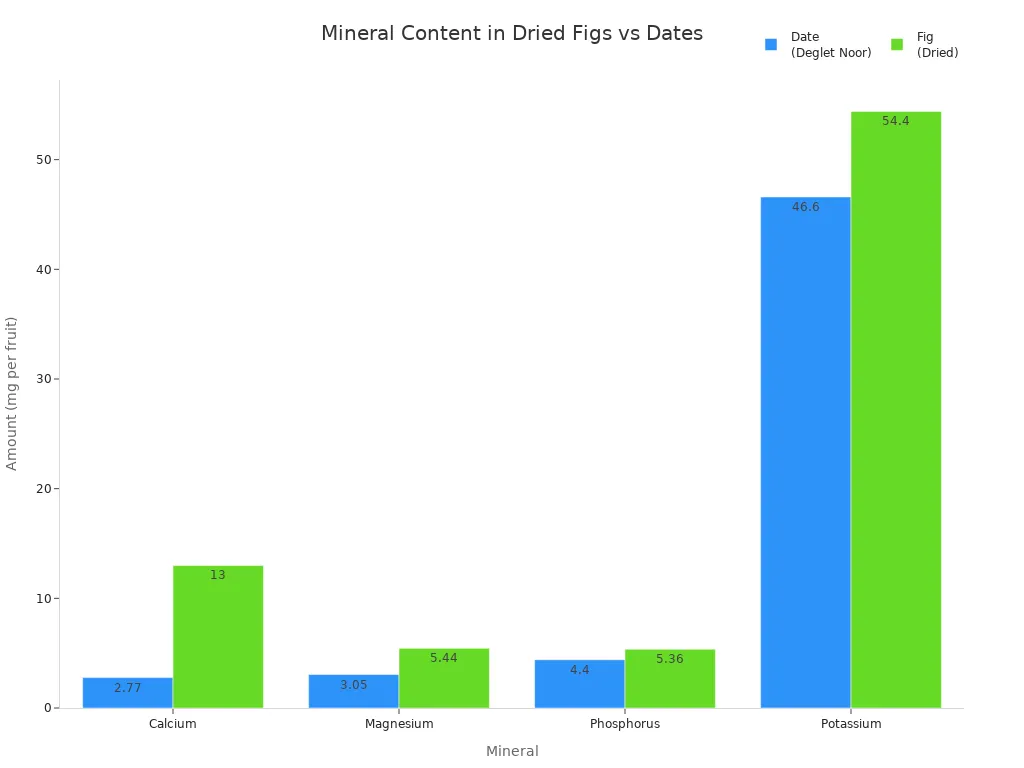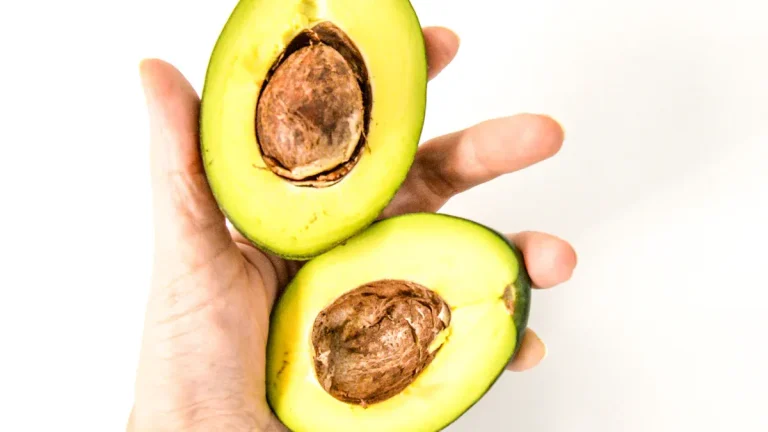
You might wonder what makes dried figs so special. These sweet bites pack a punch with nutrients that support your health. Check out what you get in just three figs:
Nutrient | Amount |
|---|---|
Fiber | 2.4g |
Calcium | 38.9mg |
Potassium | 163.2mg |
Magnesium | High |
Key Takeaways
Dried figs are rich in dietary fiber, which aids digestion and helps you feel full. Add them to snacks or meals for a fiber boost.
These fruits provide essential minerals like calcium and potassium, supporting bone health and maintaining healthy blood pressure.
Figs are packed with antioxidants that protect your cells and reduce inflammation. Regular consumption can enhance your overall health.
Health Benefits of Dried Figs

Dried figs are more than just a sweet treat. When you look at the health benefits of figs, you find a fruit packed with nutrients that support your body in many ways. Let’s break down what makes dried figs a true superfood.
Dietary Fiber
You get a high fiber content from dried figs. In fact, dried figs contain about 9.8 grams of dietary fiber per 100 grams, which is higher than prunes and most other fruits. This makes them one of the best sources of fiber you can eat.
Fruit | Fiber Content (grams per 100g) |
|---|---|
Dried Figs | 10 |
Prunes | 7 |
Other Fruits | Generally lower than 10 |
Fiber helps you feel full and supports regular bowel movements. When you snack on dried figs or add them to oatmeal, you help your body improve digestion and keep your gut healthy. The fiber in figs also feeds good bacteria in your gut, acting as a prebiotic.
Tip: Try mixing chopped dried figs into yogurt for a fiber-rich snack.
Essential Minerals
Dried figs deliver a variety of essential minerals that your body needs for good health. Here’s what you get in a typical serving:
Mineral | Concentration per serving |
|---|---|
Phosphorus | 50mg |
Manganese | 0.4mg |
Copper | 0.2mg |
Magnesium | 51mg |
Calcium | 121mg |
Potassium | 507mg |
These minerals help your bones, muscles, and nerves work properly. When you eat figs, you boost your nutrition with more calcium, magnesium, and potassium than you get from dates or apricots.

Antioxidants
Figs contain a wide range of antioxidants, including phenolic acids, flavonoids, and anthocyanins. These compounds help protect your cells from damage and reduce inflammation.
Antioxidant Compound | Amount (mg/100 g) |
|---|---|
γ-tocopherol | 314.6 |
Total Antioxidant Capacity | 140.1 |
The pulp and peels of dried figs are rich in bioactive compounds. Dark-colored Mission figs have even more anthocyanins, which boost their antioxidant power. Eating figs can help your body fight oxidative stress and support overall health.
Note: Research shows that the antioxidants in figs may protect your liver and help reduce obesity-related inflammation.
Calcium for Bones
Dried figs are a good source of calcium. You get about 162 mg of calcium per 100 grams, which is 12% of the recommended daily allowance for adults. This mineral is important for strong bones and teeth.
Two dried figs provide around 65 mg of calcium.
Regularly eating figs can help you meet your daily calcium needs and support bone health.
If you want to keep your bones healthy, adding dried figs to your diet is a smart choice.
Digestive Support
Figs offer more than just fiber. They contain bioactive components like flavonoids and phenolic acids that may help your gut. Studies show that eating figs regularly can improve your diet quality and increase micronutrient intake.
The fiber and sorbitol in dried figs work together to improve bowel movements.
Figs draw water into your bowels and soften stools, making digestion easier.
When you eat figs, you support your digestive system and help your body absorb nutrients better.
Heart Health
Figs contain potassium, calcium, and fiber, all of which support heart health. While studies show that figs may not directly lower cholesterol or triglyceride levels, they still offer benefits for your heart.
Nutrient | Amount per 4 Figs | Daily Value (%) |
|---|---|---|
Potassium | 7% | 7% |
Calcium | 4% | 4% |
Iron | 4% | 4% |
Dietary Fiber | 14% | 14% |
Eating figs as part of a balanced diet can help you maintain healthy cholesterol levels and support your cardiovascular system.
Blood Pressure
Potassium in dried figs plays a key role in keeping your blood pressure in check. One serving of dried figs contains 270 milligrams of potassium, which is 6% of the daily value.
Potassium and phenolic compounds in figs help improve vascular health.
Studies suggest that eating potassium-rich dried fruits may lower blood pressure over time.
If you want to support healthy blood pressure, figs are a smart addition to your meals.
Energy Boost
Dried figs give you a steady energy boost thanks to their natural sugars and complex carbohydrates. The fiber in figs slows down sugar absorption, so you get energy without sudden spikes or crashes.
Figs help stabilize blood sugar levels, keeping your energy consistent.
The combination of fiber and natural sugars makes figs a great snack for school, work, or sports.
A study found that fig extract can help manage blood sugar, which may support better energy throughout the day.
Immune Support
Figs contain zinc, copper, manganese, and prebiotic nutrients that help your immune system stay strong. These nutrients protect your body and fight inflammation.
Figs feed good gut bacteria, which boosts your immune response.
Regularly eating figs can improve your diet quality and increase your intake of essential micronutrients.
Figs also contain polyphenols and flavonoids, which help reduce inflammation and may lower your risk of illness.
Magnesium Benefits
Dried figs are a good source of magnesium, with 68 mg per 100 grams. Magnesium supports over 300 reactions in your body, including muscle and nerve function.
Food Item | Magnesium Content (mg per 100g) |
|---|---|
Dried Figs | 68 |
Magnesium helps relax your muscles and calm your nervous system. Eating figs can help you feel less stressed and sleep better. Studies show that magnesium from figs may reduce anxiety and improve sleep quality.
Tip: Enjoy dried figs in the evening for a tasty way to support relaxation and restful sleep.
Add Dried Figs to Your Diet

Looking for easy ways to enjoy the health benefits of figs every day? You can add dried figs to your meals and snacks for extra flavor and nutrition. Here are some simple ideas to get you started.
Snack Ideas
You can grab dried figs straight from the bag for a quick snack. Try these tasty options:
Pair figs with cheese on a snack plate.
Blend figs with nuts and seeds for a crunchy mix.
Make fig and nut energy bites by mixing oats, walnuts, and figs.
Top toast with goat cheese and sliced figs.
Wrap figs stuffed with goat cheese in prosciutto for a savory treat.
Tip: Dried figs are high in fiber and minerals, making them a smart choice for digestive health.
Breakfast Options
Start your morning with figs for lasting energy and better nutrition. You can:
Chop dried figs and stir them into oatmeal.
Add figs to yogurt with granola.
Blend figs into smoothies with fruit and yogurt.
Mix figs into pancake or muffin batter.
Adding four dried figs to your breakfast boosts fiber and calcium, especially with oats.
Salads and Bowls
Figs add sweetness and chewiness to salads and grain bowls. Check out these ideas:
Method of Use | Description |
|---|---|
Diced Figs | Sprinkle diced figs on salads for extra fiber and flavor. |
Chewy Contrast | Mix figs with greens, nuts, and tangy dressings for a tasty contrast. |
Baking Uses
You can use dried figs in baked goods for more health benefits. Try:
Adding figs to cookies, breads, pies, and tarts.
Mixing chopped figs into cakes for flavor and moisture.
Using figs in savory breads for a unique twist.
Figs bring fiber, calcium, and potassium to your favorite treats.
Pairings
Combine figs with other foods for delicious and nutritious dishes. Try pairing figs with walnuts and ricotta for a creamy snack. Add honey for extra sweetness. Figs also taste great with goat cheese and prosciutto, giving you protein and iron.
Note: These pairings boost nutrition and flavor, making your meals more satisfying.
You now know what makes dried figs a superfood.
They offer fiber, antioxidants, and minerals for your health.
Figs support your heart, bones, and digestion.
The table below shows what benefits you get when you add figs to your meals:
Benefit | What You Gain |
|---|---|
Bowel Regularity | Easier digestion |
Pain Relief | Less discomfort |
Weight Management | Feel full, eat less |
Try dried figs for a tasty boost!
FAQ
What makes dried figs a good choice for people with diabetes?
You can eat dried figs because they have fiber. Fiber helps slow sugar absorption. This can help you manage diabetes and keep your blood sugar steady.
What should you know about dried figs and obesity?
You may find dried figs helpful for obesity. They make you feel full. This can help you eat less and manage your weight better.
What are the cardiovascular benefits of dried figs?
You get potassium and fiber from dried figs. These nutrients support your cardiovascular health. They help keep your heart strong and your blood pressure healthy.

